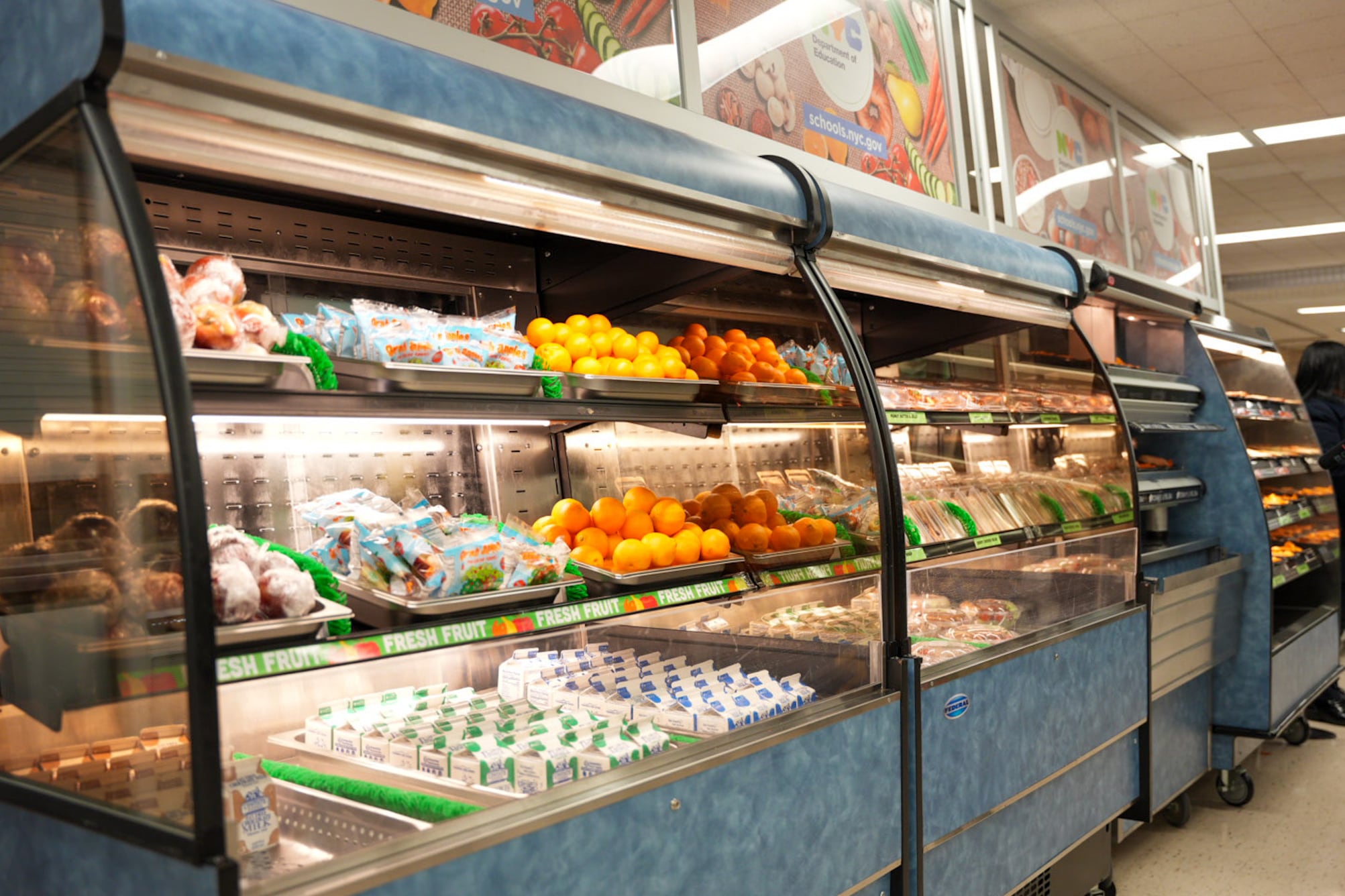Café-style seating. Deli-like grab-and-go meals. This is what school lunch looks like in nearly half of New York City’s middle and high schools.
And soon, the rest will get similar upgrades.
With $150 million in capital funding committed through the city’s recently passed budget, thousands more middle and high schools students will see their cafeteria experiences transformed over the next five years. This funding builds on $125 million previously secured for the initiative, and it will allow the Education Department to also begin exploring an expansion to elementary school cafeterias, officials said.
The changes are designed to make the school dining experience more palatable and the food more appealing. The effort to date, seems to have paid off — perhaps too well. When the Education Department slashed popular items like chicken tenders, dumplings, and cookies from cafeteria menus in February, the city’s budget director blamed it on the fact that too many kids were eating in these newly designed cafeterias.
“Bear in mind, the city made some significant investments in school cafeterias,” Jacques Jiha, director of the Office of Management and Budget, said at a March City Council hearing.”So what you end up with, you have a lot of kids hanging out in cafeterias now and eating more and more and more and more.”
The city responded by slashing some of students’ favorite items from the menu, but eventually reversed course after a massive outcry. And to guard against that happening again, the city’s final budget included an additional $20 million for school meals.
“There was a lot of pushback, and [the city] responded accordingly,” said Liz Accles, executive director of Community Food Advocates, which has pushed for the cafeteria upgrades. One of the big things that came out of the experience, she said, “you had students talking about what they liked about school food. How often do you get that?”
Accles praised the Office of Food & Nutrition Services for streamlining the process of the cafeteria upgrades over the past three years. The modern design has made a difference in how students approach school food, she added.
“Food is critical for all students, especially the kids who rely on the food,” Accles said.
Child hunger continues to be a growing problem in New York City. Roughly 78% of families said the cost of food was rising faster than their income, with 70% indicating it had become harder to afford groceries in the past year, according to a March poll conducted by the No Kid Hungry advocacy group. One in 4 New York City children are experiencing food insecurity, City Harvest said.
To encourage more kids to eat school food, Accles’ group has long been fighting to remove the stigma from it, and won a huge victory when New York City school lunch became universal. The cafeteria upgrades, she said, also help, particularly for older students.
“What this does is expresses the value of school meals, the value of the students themselves,” she said. “The updated seating, diner style booths, round tables — it looks more grownup…This is like a café. It feels good.”
Community Food Advocates found that high schools with redesigned cafeterias saw a 35% increase in student school lunch participation.
To find out whether a school cafeteria has been updated, check out the school kitchen dashboard the city launched last year. The website also includes such information as the number of meals served, whether there’s a salad bar, or if a school has a garden.
Amy Zimmer is the bureau chief for Chalkbeat New York. Contact Amy at azimmer@chalkbeat.org.






